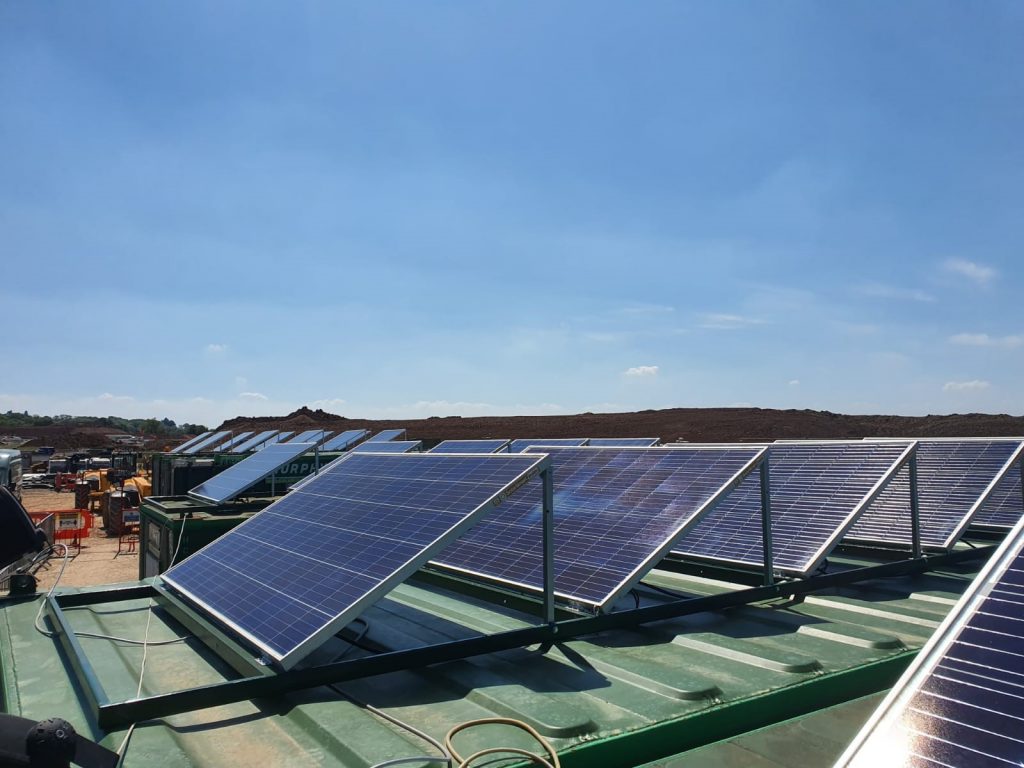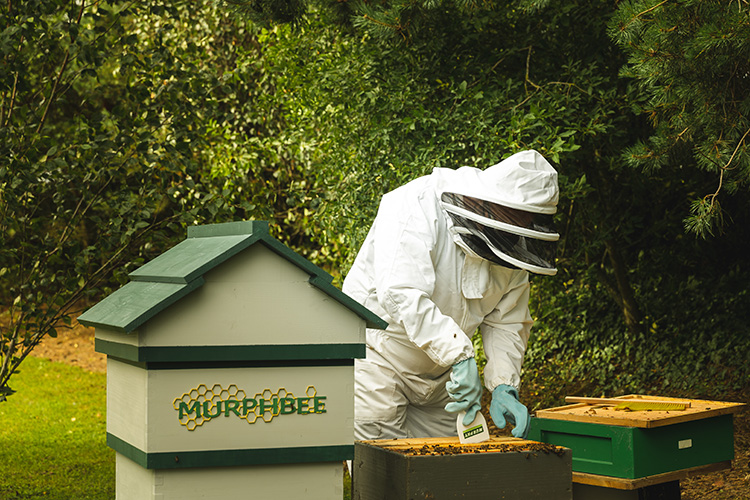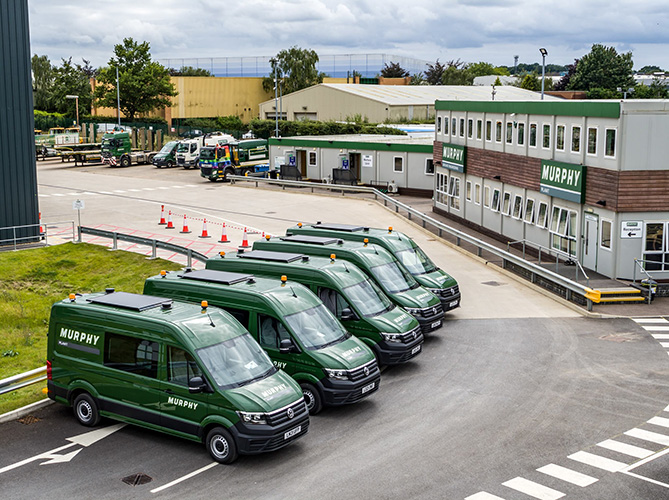
Civil Engineering Contractors Association president John G Murphy speaks with BARRY MCCALL about some of the fundamental changes needed to the public procurement process for the industry to become more sustainable.
In what might be seen as an echo of St Augustine’s famous prayer, successive governments have effectively been saying, ‘Lord make us sustainable, but at zero cost.’ This applies especially to public procurement, where scant attention has been paid to sustainability criteria over the years. This failure, according to Murphy Ireland managing director and president of the CECA John G Murphy, is hampering the industry’s efforts to reduce its environmental impact.
The cost of sustainability
“The majority of our sector’s work makes the world around us more sustainable and connected through the upgrading and improving of infrastructure,” John G Murphy starts. “But we cannot escape the fact that the construction process and the materials used throughout contribute heavily to carbon emissions. An awful lot of work has been done by individual companies to shift towards more sustainable and environmentally-friendly work practices, but, unfortunately, this tends to come at a cost.”
Initial cost tends to be the problem.
“It is not cheap,” he points out. “I am not saying it is more costly in the long run, but there are upfront and short-term costs involved.”
He believes a shift in the approach to risk is required.
“It’s like Russian roulette but with three bullets in the chamber of the six-gun, not one..; people would say you’re nuts to take that risk. But lots of those same people still smoke, and one in two smokers will die of a disease related to the habit. That’s a 50:50 chance. People’s perception of risk is interesting. It’s the same with climate change. We know what’s going to happen if we don’t take action, but people still make excuses for putting it off. But the world seems to be waking up to it.”
Unfortunately, that growing recognition of the problem hasn’t been reflected in public works contracts.
“The average margin in construction is now below 3%,” he notes. “And that has to cover all risk too. That just doesn’t make any sense. Fixed price contracts don’t cope with change and are not designed to. All risk is passed on to the contractor.”

Contract changes
Of course, exceptional circumstances can require extraordinary measures, Murphy points out. “During Covid, the government had to step in and issue a directive to clients to keep the industry alive by paying for the increased costs created by the pandemic.”
But that was very much a once-off measure.
“Force majeure has been watered down to the point where it no longer deals with inflation due to war or pandemics,” he says. “And no contractor is going to build in the potential risk of a pandemic or a war in Europe when they are tendering for a job. That would make their bid completely uncompetitive in comparison to others.
“That leaves the sector in a near-impossible situation when it comes to climate action,” he continues. “Contractors simply can’t afford to spend money on the environment or other sustainability measures. The market is just too competitive. There are things you can do, of course. When it’s a 50:50 choice, and everything else is equal, we will always take the environmentally superior option at Murphy. We invest millions each year in plant, for example. When buying a car, you look at the fuel consumption and the emissions. You might not care about the planet, but you are concerned about running costs and the motor tax bill. We found that by weighing those things up, we cut our fuel bills dramatically. In this instance, the eco option saves money. We have also put solar panels on office and container roofs and installed wild-flower meadows where we operate long-term facilities. There is a lot of stuff we can do in the industry. We need to innovate to be more eco-friendly and then take ownership of it. We need to be more aware of it and not do stupid stuff like using polystyrene to form openings in formwork when other more sustainable materials will do.”
Reducing carbon emissions
Carbon offsets certainly aren’t part of the answer though, Murphy argues. “If companies in the sector were to say they are going to reduce their emissions to zero in the next 10 years, they would go bankrupt if they tried to do it by purchasing offsets. That’s not saving the planet either. It’s just moving the emissions around.
“The best place to start is with the metrics,” he points out. “The first thing we have to do is measure our emissions. You see a lot of claims about reductions without the companies knowing what their emissions were in the first place. You really can’t manage what you haven’t measured.”
The next steps come down to making the right choices in areas like plant where electrification offers scope for quite dramatic emissions reductions. However, that is reliant both on having the electricity infrastructure to deliver the power to where it is needed and on having the renewables capacity on the system.
“The ability of the power system to meet rising demand is a problem,” says Murphy. “There are planning issues that need to be resolved there. They’ve been talking about the North-South Interconnector for the past 15 years, and it’s still not there. And despite Arklow being the biggest offshore windfarm in the world when it was constructed, very little has happened since then. The rest of the world has sped past us in offshore wind generation. Embarrassingly we keep hearing about our great potential.

Benefit in kind for electric vehicles
He laments the changes made in Budget 2022 to the benefit in kind (BIK) tax treatment of electric vehicles that will see the phasing out of the 0% BIK rate on electric vehicles over the next four years. As things stand, the zero rate applies to cars with an original market value (OMV) of less than €50,000. For cars worth more than that, the tax is levied at the 30% rate on the balance.
From 2023, the €50,000 threshold reduces to €35,000, and a new rate of 22.5% is levied on the balance above that. The threshold falls to zero in 2026.
“That’s a real problem,” says Murphy. “Companies make decisions on fleet purchase years in advance. All of a sudden, the rules have changed. Electric vehicles are more expensive than internal combustion engine cars as things stand. The BIK advantage partly offsets that. But if they are now going to be more expensive still, that may make companies change their buying intentions.
“Does the government want to help save the planet or not? I think they are being a bit short-sighted here. I could understand it if they kept the BIK on the more expensive cars or increased it in some way.
“Indeed, when the higher costs of EV purchase are added to the increased tax, this can amount to a penalty for doing the right thing.”

Materials inflation
The government’s approach to inflation in public sector contracts is another problem.
“They brought out an advisory note which stated that if inflation is more than 15% on materials, they will pay compensation for the amount over and above that. That isn’t much help when something like the war in Ukraine has driven up costs by an average of 6% for an industry operating on margins of less than 3%. If you are doing a project with a lot of timber, steel, or plasterboard, that will come to multiples of 6%. Labour costs will be less than that, of course, but with general inflation increasing, the cost of labour will come under more pressure also.”
He believes that this will compromise the industry’s ability to deliver on the National Development Plan.
“It takes so long to award contracts; you’ve already had a year of inflation, pushing up costs before you start. It isn’t only large infrastructure projects that will be affected. Areas like affordable housing will be hit as well. It will get to the point where contractors can’t afford to build the houses. It’s going to slow up private sector housing development as well. Builders won’t be able to sell ever more expensive houses when houses are already too expensive.”
- “Force majeure has been watered down to the point where it no longer deals with inflation due to war or pandemics. And, no contractor is going to build in the potential risk of a pandemic or a war in Europe when they are tendering for a job. That would make their bid completely uncompetitive in comparison to others.``
Public works contracts flexibility
He believes the way to deal with this issue is by having more flexibility built into public works contracts similar to the private sector arrangements.
“If you look at it from the client side, they are trying to push their projects through and get them included in budgets,” he explains. “That means they will tend to lowball their price estimates, which means the budget for the project is too low to begin with. And there is a great fear of cost overruns, and public sector clients tend to be fixated on delivery within budget. Trying to achieve that through fixed price inflexible contracts is destroying the industry.
“If you said to businesses in any other sector like agriculture that they would have to accept fixed prices for the next two years or more, you wouldn’t get very far,” he continues. “It seems that construction is always treated as the enemy. But the industry delivers real value to the taxpayer. It employs 150,000 citizens and is very much an export industry now. It is an industry that is very much worth saving.”
Changes to design, build and operate (DBO) contracts have also had an impact.
“These used to be 25 years in duration, and that meant the contractor looked to supply equipment and materials that weren’t necessarily the cheapest but delivered the best whole-life value for the client. This is the more sustainable option. We are now seeing some clients reducing the duration of these contracts to just one year, and that will see contractors going for the cheapest rather than the best or most environmentally efficient option.”
The approach to public procurement and the nature of public works contracts must change if the industry is to meet the sustainability challenge.
“The problem is that companies are more worried about staying in business than saving the planet. They need to be profitable, but they also need to innovate to be more eco-friendly.”
Embed sustainability into infrastructure contracts
There is a simple solution that could assist the industry in becoming more sustainable at the same time as supporting it in the delivery of the National Development Plan whilst making a significant contribution to meeting the government’s Climate Action Plan targets.
“If the client was to step in and require certain sustainability criteria to be met at the pre-qualification stage, this might increase the cost of the project, but it will make sustainability happen. For example, if there were energy efficiency specifications for materials in the contract, that would shift the balance from cost to environment. Shift the balance from short-term to long-term. There would be no competitive advantage available to contractors or clients who found a lower cost but less energy-efficient product. The competitive nature of tendering without incentivisation will always gravitate to the lowest cost option.”
Those types of actions will eventually have impacts across the value chain.
“Four to five years ago, we said we need to start thinking seriously about the environment and how we impact it and more importantly about what we can do about it,” he points out. “That led to us buying excavators with half the fuel consumption of the previous models. If more companies do that, it will force manufacturers to start thinking about what they are producing. It will be a bit like the US in the 1970s when the oil shocks hit. Japanese fuel-efficient cars cornered the market because the American alternatives became too expensive to run. It is no surprise today that the biggest electric vehicle manufacturer in the world is from the US. But that never would have happened without the oil crisis. But we shouldn’t wait for something like that. At Murphy, we have doubled our EV fleet every year and installed charging points at offices and sites, even in employees’ homes. We are investing more in electric plant, installing solar panels on our sites, investing in eco-welfare units and cabins, and trying to understand and lessen our impact on the environment more fully. The investment may never pay for itself, but it is still the right thing to do. We now need our government and clients to take the next step and start introducing environmental requirements into award evaluations, so the price/quality evaluation of tenders starts to include the environment,” John G Murphy concludes.



